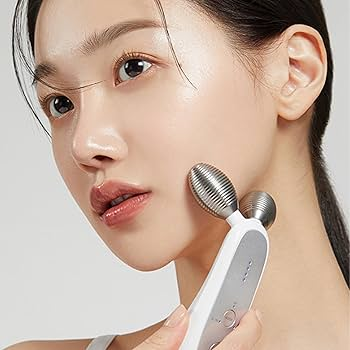Demystifying Medical-Grade Skincare
Hello, everyone! We're back with another article from But More Importantly, where we delve into topics related to skincare, dermatology, and beyond. Today's topic? The ongoing debate: medical grade skincare versus drugstore skincare. Is the investment in medical grade products really worth it? Let's break it down.
Understanding 'Medical-Grade' Skincare
Let's start with understanding what we mean by 'medical grade skincare.' Among a vast range of skincare terminologies, understanding where 'medical-grade' fits in is crucial. To do so, we must first clarify what we mean by 'prescription skincare.' These are products like tretinoin, azelaic acid, or clindamycin, which in the United States, require a written prescription from a licensed healthcare provider. These are regulated by the FDA and go through rigorous clinical trials to ensure they are safe and effective.
On the opposite end of the spectrum, we have 'cosmeceuticals,' entirely unregulated products. However, with the introduction of MoCRA, regulations are gradually coming into effect. This doesn't mean they are free to make any claims they want; there are restrictions on what they can and can't say to avoid regulation.
Between these two extremes, we have 'OTC' or over the counter products. Contrary to what one might assume, OTC does not fall under 'cosmeceuticals,' but they are regulated by the FDA. Any product you see on drugstore shelves that lists an active ingredient on its label is considered OTC and is regulated by the FDA. Examples include sunscreens, acne products, dandruff products, and eczema products. These products indeed come with their own set of regulations. So, as we explore this complex skincare landscape, we'll continue to analyze the value and efficacy of medical grade skincare versus what's readily available at your local drugstore.
The Shift in the Skincare Industry
For years, people have lauded medical-grade skincare as superior to over-the-counter options. But what does 'medical grade' truly mean? Essentially, it is a term coined by brands that assert to be medical-grade, without any required changes in formulation, ingredient quality, or clinical studies to differentiate themselves from other brands. Many brands, such as Vichy and L'Oreal, also conduct studies without claiming to be medical grade.
My personal experience with many medical-grade brands has been positive, with the product quality often impressing me. They are rarely disappointing, and the formulations usually make sense. My hypothesis is that these brands understand they are under closer scrutiny, which might explain why they seem elevated. However, this is purely speculative. In essence, 'medical grade skincare' is a marketing term that anyone can use. In the past, it referred to products that were only available from a physician or a med spa, not sold in mainstream outlets like Sephora, Walgreens, or online. The providers would educate the patients about the products, highlighting their superiority to over-the-counter options. This perceived exclusivity justified higher prices.
But as the term became more popular, brands realized they could also claim to be 'medical-grade' without any restrictions. Consequently, the term lost its initial significance. Despite this, many 'medical-grade' brands still offer excellent products. Brands like Obagi, SkinCeuticals, SkinBetterScience, and EltaMD were considered 'medical-grade' and backed by clinical studies. Over time, we have seen a shift, with technology making things more accessible and brands finding ways to balance pricing. The skincare industry has significantly improved over the past few years, with more high-quality products flooding the market. The rise of social media and influencers, and the shared knowledge they bring, have all played a role in this leap. The gap between 'medical-grade' skincare and store-bought options is no longer as vast as it once was.
Personalized Recommendations: The Key to Effective Skincare
The value of a product often lies in the recommendation, particularly when it comes to skincare. When you visit a professional, they may suggest products based on their knowledge of your skin and your individual aims, providing a personalized service that is hard to replicate with over-the-counter products. The strength of the recommendation is reduced when products are bought on a whim, perhaps because a friend suggested it, and this may impact the product's effectiveness due to it not necessarily being the right fit for your skin. Being in a professional office with access to products can be valuable, whether they're medical grade or over-the-counter.
We have a fondness for certain medical grade skincare brands, not because they're classified as such, but because we appreciate their quality. Just as we're fans of certain natural or "clean" skincare brands (a term coined purely for marketing), not because they're marketed that way, but because we genuinely appreciate their products. Many brands have standout products backed by extensive data, and these exceptional offerings can elevate the entire brand's reputation. However, we don't believe in blindly following a brand; it's more about cherry-picking the best products.
Our Top Picks: Medical-Grade Products Worth Trying
We'd like to share some of our preferred medical grade products. First off, we recommend Elta MD's sunscreen line, particularly the UV restore tinted product. Initially only available through dermatology offices, it has now become widely accessible online. Drmtlgy, despite its name, is an over-the-counter medical grade skincare brand we love. In our opinion, their products are consistently high quality, well-formulated, and purposeful.
Another brand we're fond of is Skin Better Science, especially their Alpharet product. While not all their products justify their price tag, Alpharet's formulation is backed by substantial scientific evidence, warranting its "medical grade" label.
A Closer Look at Vitamin C Serums
SkinCeuticals offers a particular standout product: their vitamin C serum. There's something uniquely effective about this product. Despite its "medical grade" tag, remember that product quality is paramount, not its classification.
There are a plethora of alternatives out there for vitamin C. Drmtlgy also has an impressive vitamin C that's worth a look. My personal favorite, however, remains the vitamin C from SkinCeuticals. I'm a fan of its unique, bread-like aroma. It's an uncomplicated, well-researched product. If you're considering an L-ascorbic acid product, this is the one to pick. Yes, it's an investment, but it's a worthwhile consideration.
I must admit, not all their products resonate with me, as I had an allergic reaction to one. However, that doesn't tarnish the reputation of the entire brand. Their vitamin C, the trailblazer in L-ascorbic acid, still holds a special place in my heart. Interestingly, their Silymarin CF, a vitamin C with a hint of salicylic acid, doesn't seem irritate people's skin so much. It allows users to reap the benefits of vitamin C without the side effects. My advice is to find the SkinCeuticals vitamin C product that best suits your skin, as it can be a finicky ingredient.
In conclusion, we've discussed a few "medical grade" products, although remember, "medical grade" is merely a marketing term. The key is to purchase products that are truly beneficial for your skin. Don't be swayed by the price tag, as a higher cost doesn't necessarily equate to superior quality. Our goal here is to equip you with the knowledge needed to make informed decisions for your skin health that are financially viable as well. We hope this has been helpful for you. As always, thank you for your support. Don't forget to like, comment, and subscribe. We'll see you in our next article.
About the Author: Caolan
With over a decade of international experience, Caolan's passion lies in simplifying the complex. His innovative thinking and audience-first approach have made significant impacts across the creative industries. Now, as the founder of But More Importantly, he applies these talents to the world of cosmetics, aiming to unmask marketing hype and provide readers with the truth about beauty products. His mission: to help you make informed choices and discover what truly enhances your beauty routine.




















